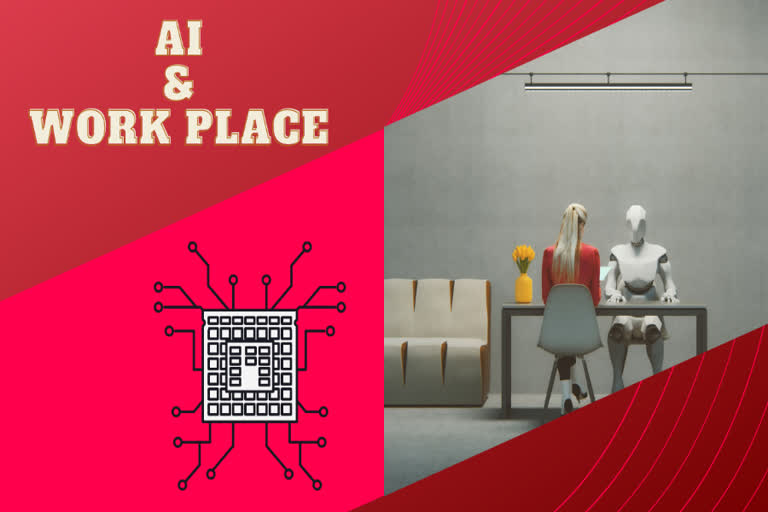Delhi: The use of Artificial Intelligence(AI) would increase the level of automation as well as the effectiveness of those processes. Digital transformation is required before companies can start their Artificial Intelligence transformation because digital data is necessary for Artificial Intelligence training and digital processes are necessary to roll-out Artificial Intelligence solutions in most cases.
Thanks to technologies such as Artificial Intelligence, the Internet of Things (IoT), and Robotics that will drastically change the way we work. The future of work will come with great opportunities but also with plenty of challenges for organizations. It will require both - employees as well as management to adapt and work smarter.
Artificial Intelligence will augment your jobs, the Internet of Things will provide you with greater detailed insights, and robotics will replace many jobs.
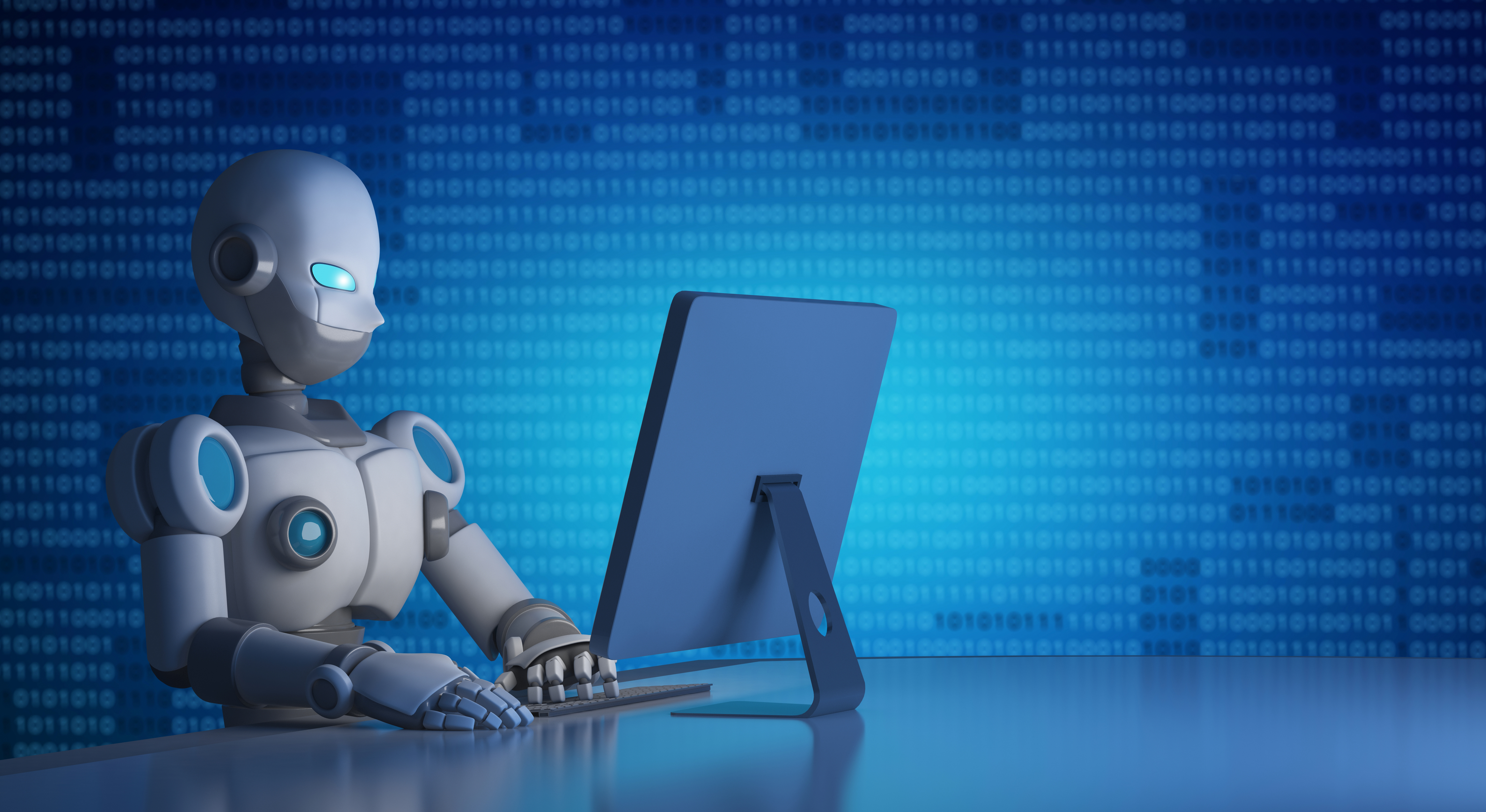
There have been rapid innovations in automation and Artificial Intelligence in 2020. For instance, now we have advanced robots, machine learning chatbots, and autonomous systems. Organizations have started reaping the benefits of these technologies as they offer value for different goods and services.
Corporates from various industries are already leveraging Artificial Intelligence in personalizing utility recommendations, enhancing customer care, identifying anomalies in the production process, detecting fraud, etc.
Also Read: Dark Side of Artificial Intelligence
As Artificial Intelligence continues to take root, a future where humans and robotics work together will become a reality. By 2025, the Artificial Intelligence market is forecasted to reach a whopping $190 billion. We can already see Artificial Intelligence in many aspects of our daily lives, for example, when shopping, interacting with customer care, etc. In the coming years, artificial intelligence and automation technologies will affect jobs, businesses, commerce, and life in society as a whole.
Col. Inderjeet further explained, "The integration of Artificial Intelligence into the workplace will come through augmentation of human skills rather than substitution of jobs. Artificial Intelligence, in fact, does not automate jobs. It automates certain skills in jobs. Technology in the form of machines, robots, or digital assistants competes with humans for tasks. Machines in factories and computers in workplaces have taken on the repetitive, but cognitively demanding work of, for instance, office clerks (automatic teller machines)."
He is of the opinion that fewer workers with intermediate skills are needed to execute tasks of intermediate complexity, and these workers then compete with both low-skilled and high-skilled workers for low- and high-complexity tasks. Intermediate-level jobs will fare less well, with lower employment and lower wages.
Apart from artificial intelligence taking jobs and creating more, it will change the nature of employment roles as machines complement the human workforce. With partial automation of tasks, many job responsibilities will be reconfigured. For example, jobs that involve repetitive tasks will turn into managing and operating automated systems. In medical practice, doctors will depend on AI algorithms to analyze patients’ scans to achieve a high degree of accuracy.
Robotic Process Automation (RPA) – also known as software robots or the new “digital workforce” – can automate the clerical, repetitive, and often mundane aspects of a job, enabling employees to reconfigure job functions in new, meaningful ways.
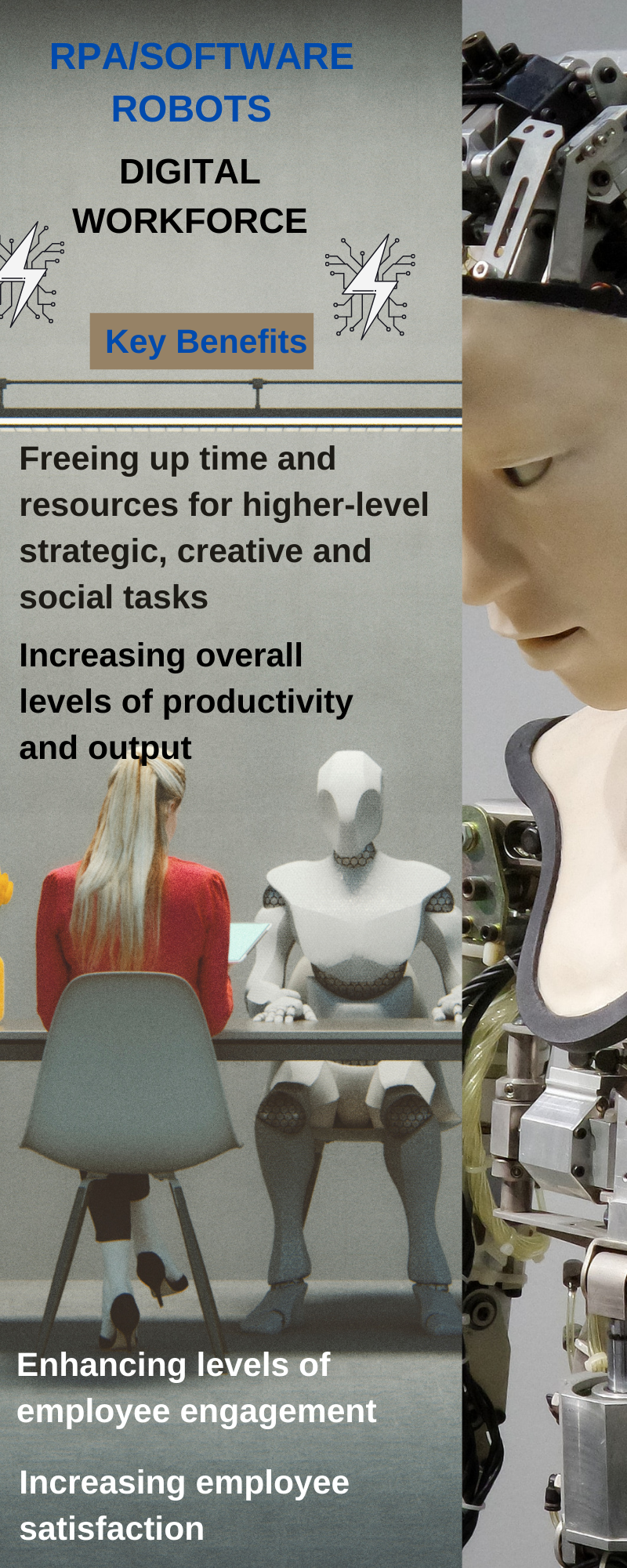
- The digital workforce can also play a pivotal role in helping employers hire and retain competitive talent.
- Attracting and maintaining the best talent fundamentally comes down to being able to create a work environment in which employees are happy and engaged where they work.
- As many employees typically are not satisfied with repetitive, routine work, automating these responsibilities enables employees to focus on tasks that are more compelling, relevant, and fulfilling, which can support engagement and retention levels.
Col Inderjeet very strongly adds, " It’s inevitable that artificial intelligence and automation will become increasingly prevalent in the years ahead. But, unlike many people fear, it won’t be a case of robots replacing employees – nor will the only jobs be in robotics and programming. Counter-intuitively, as machines become more intelligent, soft skills – creativity, emotional intelligence – are going to become ever more important for businesses."
Also Read: Deepfakes: The dark side of Artificial Intelligence
He is also of the opinion that changes due to Artificial Intelligence which will come are the skills that are needed in the workforce. While Artificial Intelligence might not be replacing existing jobs in the immediate term, it’s most definitely going to change the kinds of skills required in the workplace – and it’s already doing so.
As a result, over the next decade, more than 80% of process-oriented tasks will be done by artificial intelligence systems. Quantitative reasoning tasks will be done approximately 50% by humans and 50% by machine, while humans will continue to do more than 80% of cross-functional reasoning tasks.
Some professions will fall in decay, others will thrive, and most of them will drastically change. Jobs made up of process-oriented activities will see declines. Growing occupations will be linked to quantitative and cross-functional skills, which are more difficult to automate. Humans will need to move from occupations in decay to growing professions, and, in some cases, to completely new occupations.
- Companies will also need to redesign jobs, assigning tasks to humans, other tasks to machines, and finally some of them to a collaborative model, where artificial intelligence augments humans.
- Workflows and workspaces will evolve to facilitate human-machine collaboration. For example, warehouse design may change significantly. Some areas will mainly accommodate robots while other areas will be used for human-machine interactions. Flow transitions from artificial intelligence to humans will occur and require systematic governance.
Col Inderjeet said, " This human-machine collaboration will create a large number of new jobs which leverage mainly quantitative reasoning skills as well as knowledge of specific digital and artificial intelligence technologies."
By freeing employees from these other tasks, artificial intelligence will allow them to be more empathetic, to focus on creativity, customer experience, employee engagement, workplace culture, social skills, and emotional intelligence. For example, a simple customer service bot can independently answer about 80% of queries. This allows customer service representatives to focus on the other 20% that require better contextual understanding or more empathy.
Also Read: AI Based Threats explained by Col. Inderjeet Singh, DG, CSAI
As a result, work will also be more rewarding. Organizations will become more collaborative and increasingly agile and non-hierarchical. Higher employee satisfaction, more creativity, more free time, reduced employee churn, and increased customer satisfaction will be some of the positive consequences of artificial intelligence in the workplace.
Artificial intelligence will make the workplace more human, not less. This is the gift of AI to mankind.
Benefits of AI Applications in Future Workspaces; The foremost use of artificial intelligence applications is in managing data and reshaping the existing resource to build future strategies. Some of the focus areas are:
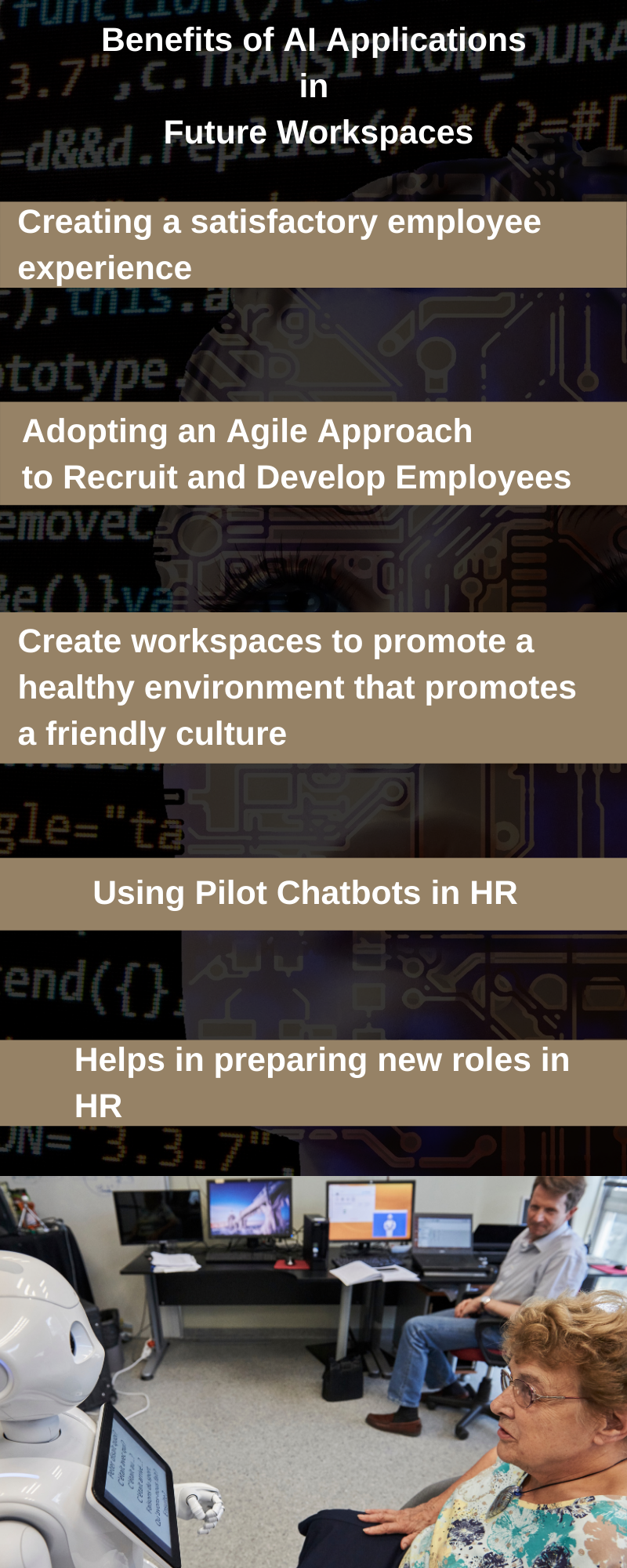
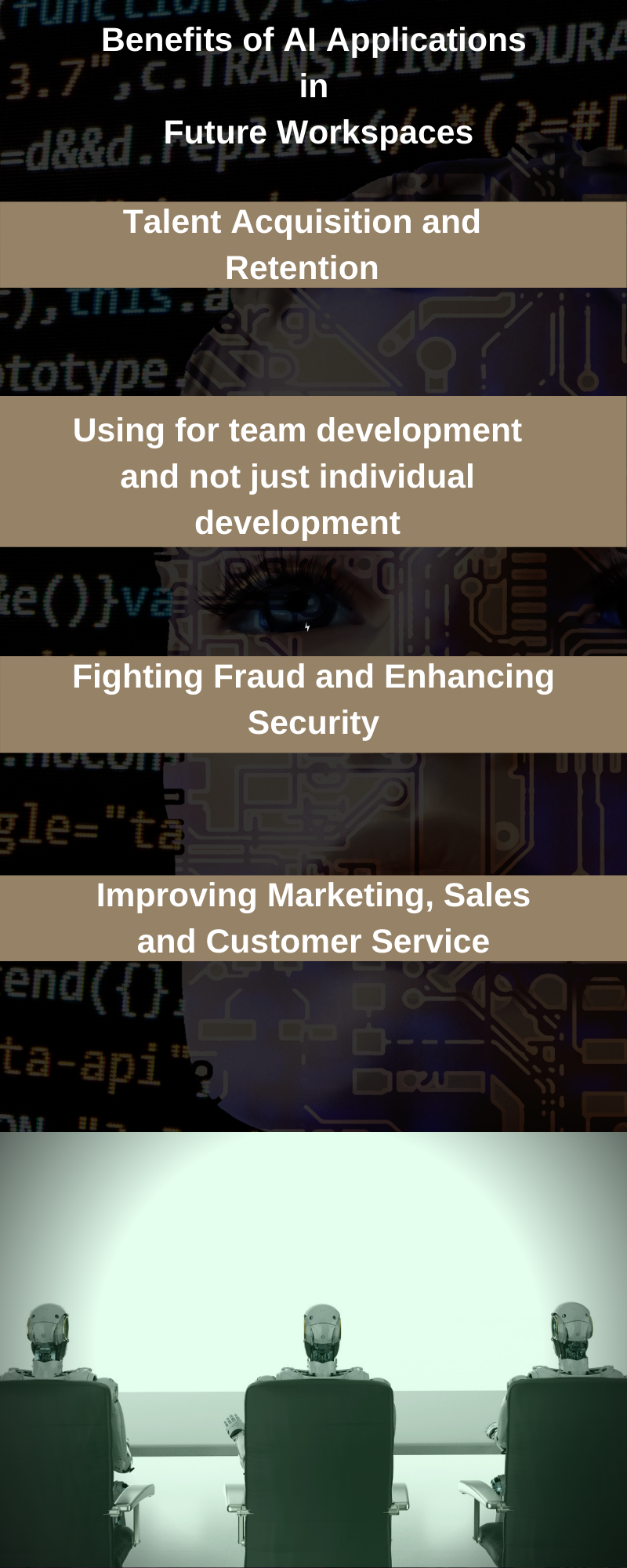
You can follow Col. Inderjeet on twitter @inderbarara, insta:inderbarara
Also Read: Know all about Ransomware

